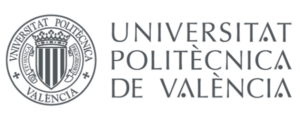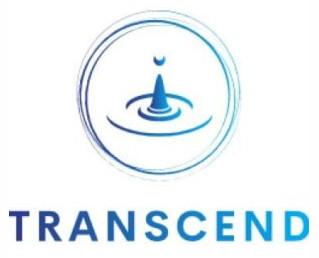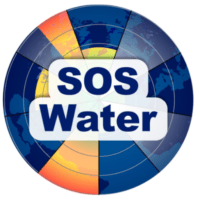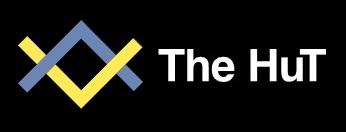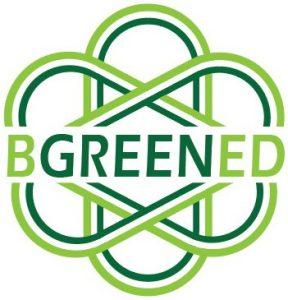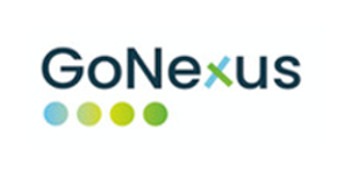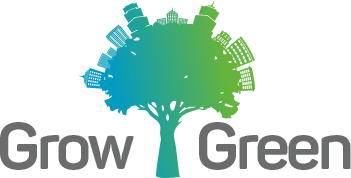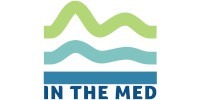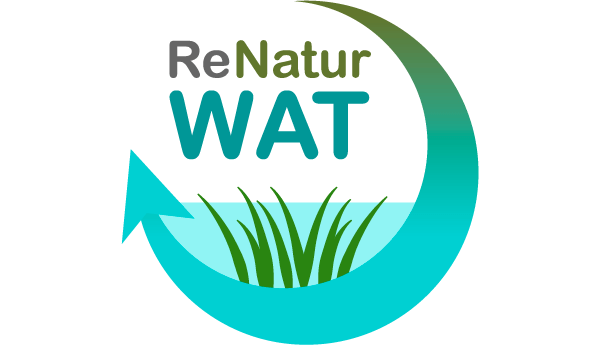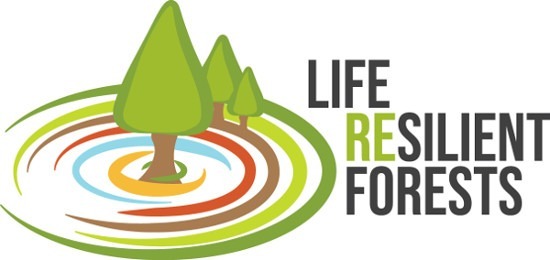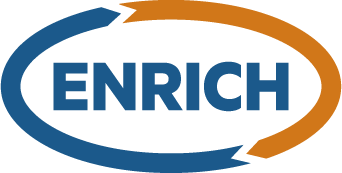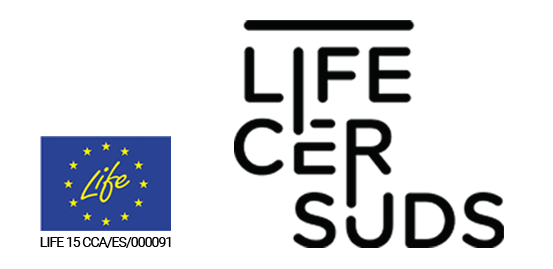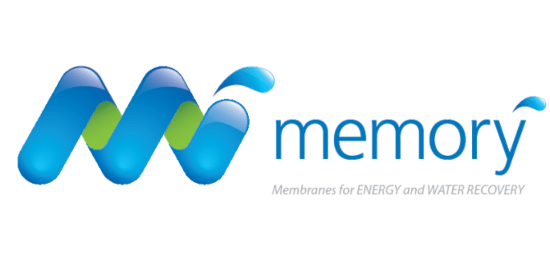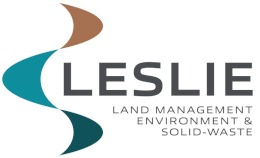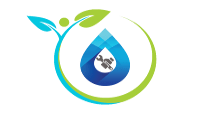R&D projects
European Projects
HORIZON EUROPE
HORIZON 2020
PRIMA
LIFE
FP7
CLIMATE KIC
OTHERS
HORIZON EUROPE
Transformational Adaptation Policies to water scarcity
IIAMA participants:
Pulido-Velazquez, Manuel (IP) • Macián-Sorribes, Héctor • Rubio-Martín, Adrià • Gómez-Martín, Eulalia
Budget: 4.474.769 € Period: 2023 – 2026
Project description
The objective of TRANSCEND is to identify and catalyze the adoption of Transformational Adaptation Policies (TAP) to water scarcity, including innovative allocation systems and economic instruments, that are robust and adaptable to uncertainty and change, while simultaneously achieving equitable and sustainable economic growth and welfare.
REsilienT water gOvernance Under climate CHange within the WEFE NEXUS
IIAMA participants:
Pulido-Velazquez, Manuel (IP) • Rubio-Martín, Adrià • Gómez-Martín, Eulalia
Budget: 2.994.747 € Period: 2023 – 2026
Project description
Building upon the Water-Energy-Food-Ecosystems (WEFE) Nexus, RETOUCH NEXUS aims to design and advance integrated, innovative, and inclusive Nexus-smart water governance schemes and institutional settings aiming at a secure water future in the EU, resilient to climate change.
Water Resources System Safe Operating Space in a Changing Climate and Society
IIAMA participants:
Rubio-Martín, Adrià • Gómez-Martín, Eulalia • Macian-Sorribes, Hector • Martinez-Capel, Francisco • Pulido-Velazquez, M. (IP)
Presupuesto: € Periodo: 2022 – 2026
Project description
Garantizar un suministro sostenible de agua para el futuro
El agua es fundamental para nuestra supervivencia: tanto para la salud de las personas y los ecosistemas, como para la agricultura e innumerables procesos industriales. El cambio climático ejerce cada vez más presión sobre unos recursos hídricos que ya se encuentran en una situación difícil. Para garantizar su sostenibilidad mediante un marco con base científica a escala local y regional será necesario adoptar un marco de evaluación integral y participativa. El equipo del proyecto SOS-WATER, financiado con fondos europeos, desarrollará un nuevo sistema de modelización integrada del agua que vincula modelos avanzados del sistema hídrico con modelos sobre las posibles repercusiones en la biodiversidad y los servicios ecosistémicos. Junto con datos de observación de la Tierra, la labor del proyecto mejorará la gestión y la planificación hídricas a varios niveles, lo cual garantizará una asignación eficaz, resiliente y justa del agua.
THE HUMAN-TECH NEXUS – BUILDING A SAFE HAVEN TO COPE WITH CLIMATE EXTREMES
IIAMA participants:
Rubio-Martín, Adrià • Gómez-Martín, Eulalia • Macian-Sorribes, Hector • Pulido-Velazquez, M. (IP)
Budget: € Period: 2022 – 2026
Project description
Emphasis will be placed on assessing the transferability of the developed innovations to different territorial contexts and hazards. The activities will be designed to maximise the chances of these innovations having a long-lasting impact, inside and outside the demonstrators’ arena.
The project’s main ambition is to promote a set of trans-disciplinary risk management tools and approaches that could be adopted and used in as many situations as possible. Specific attention will be devoted to assessing the transferability of the developed innovations across territorial contexts and hazards.
HORIZON 2020
Boosting the green future via university micro-credentials
IIAMA participants:
Capilla Romá, José Esteban • Rodrigo-Ilarri, Javier
Budget: € Period: 2022 – 2024
Project description
Objectives:
The main objective of the project is to boost the European green economy and climate neutrality through the development of innovative HE practices related to the implementation of micro-credentials designed in cooperation with European standards bodies that meet the market needs and facilitate the provision of flexible, accessible, and inclusive education in relevant industry/sector standards that support the transition to a green and digital economy.
Innovative tools and solutions for governing the water-energy-food-ecosystems NEXUS under global change
IIAMA participants:
Pulido Velázquez, Manuel (Coordinador, IP) • García Prats, Alberto • Macián Sorribes, Héctor • Jiménez Bello, Miguel Ángel • Martínez Capel, Francisco (IGIC) • García Mollá, Marta (CVER) • Manzano Juárez, Juan (CVER) • Sanchiz Ibor, Carlos Abelardo (CVER) • Vega Carrero, Virginia (CVER)
Budget: 5.417.013,75 € Period: 2021 – 2025
Project description
GoNEXUS aims to develop a framework for designing and assessing innovative solutions for an efficient and sustainable coordinated governance of the water-energy-food-ecosystems (WEFE) nexus.
Solutions will combine policy changes and soft path options with technical and infrastructure measures for a more resilient future. To achieve this objective, the project will build a powerful model toolbox and creative participatory Nexus Dialogues. The model toolbox will include forefront global/continental and river basin models, innovatively establishing a functional link between them.
At global and continental scales, the toolbox will include the individual WEFE element models CAPRI (food, agri-environment), LISFLOOD-EPIC and PCR-GLOBWB (water), PRIMES and PROMETHEUS (energy), GLOBIO (environment), and GEM-E3 (macroeconomics), some of them used in EU policies. River basin models will include nested strategic WEFE management models (including behavioral modelling) and hydrological simulation models to expand the analysis of resilience at basin scale, including impacts on ecosystems. Nexus Dialogues will co-design scenarios, models, and solutions for a joint governance of the WEFE nexus.
The solutions will be evaluated using the model toolbox through a set of novel nexus indicators and criteria (based on relevant SDGs metrics) to assess trade-offs between water status, and food and energy security. GoNEXUS will be applied at global and EU levels and to six river basins representing different features and WEFE challenges in Europe (Danube, Como, Jucar, Tagus-Segura) and Africa (Zambezi, Senegal).
The innovative combination of models and Nexus Dialogues will provide more accurate evaluations of future scenarios, enabling knowledge sharing and brokerage, and improving WEFE nexus management. The project will also contribute to align existing EU WEFE policies, promote the reduction of institutional fragmentation, and strengthen the EU role on water diplomacy.
Green Cities for Climate and Water Resilience, Sustainable Economic Growth, Healthy Citizens and Environments
IIAMA participants:
Andrés Doménech,Ignacio • Escuder Bueno,Ignacio • Martín Monerris, Miguel • Lidón, Antonio
Budget: 11.458.133,25 € Period: 2017 – 2022
Project description
The frontrunner cities of Manchester (UK), Valencia (Spain), Wroclaw (Poland) and Wuhan (China) and the follower cities Brest(France), Zadar (Croatia) and Modena (Italy) are currently inhabited by 12.7 million people and sit at the heart of wider metropolitan areas which are home to 17.8 million people. All cities already experience flooding and heat stress, with projections for these issues to increase due to climate change and ongoing development. Working in complex, resource-constrained urban environments, the municipalities for each city have committed to delivering joined-up, cost-effective, smart solutions to address these and other urban challenges. They recognise that the cities of the future will need to achieve more with less resources and deliver genuine sustainable development that realises a broad range of social, economic and environmental objectives. Each city believes that nature-based solutions (NBS) are a critical part of this approach.
GROW GREEN brings the partner cities together on the basis of these similarities but also their differences. Across the 6 European and 1 Chinese City they represent the range of different cities that are found across the world, and the different climate risks that they face. The cities will demonstrate a replicable approach for the development and implementation of city NBS strategies.
The outcome will be more than simply demonstrating a methodology that works in the partner cities. GROW GREEN will provide the platform for a step change in the way that NBS are embedded in the long-term planning, development, operation and management of cities around the world. The project outputs will be promoted directly to 4-5 follower+ cities in Latin America, Africa and India to encourage them to develop and implement NBS strategies and to 146 Chinese ‘Sponge Cities’. These channels have been designed to create global demand for NBS and to promote European NBS products and services to meet this demand.
IMPREX
Improving predictions and management of hydrological extremes
IIAMA participants:
Andreu Álvarez, Joaquín (IP) • Pulido Velazquez, Manuel • Paredes Arquiola, Javier • Solera Solera, Abel
Budget: 7.996.848 € Period: 2015 – 2019
Project description
For a better anticipation on future high impact hydrological extremes disrupting safety of citizens, agricultural production, transportation, energy production and urban water supply, and overall economic productivity, prediction and foresighting capabilities and their intake in these strategic sectors need to be improved. IMPREX will improve forecast skill of meteorological and hydrological extremes in Europe and their impacts, by applying dynamic model ensembles, process studies, new data assimilation techniques and high resolution modeling. Novel climate change impact assessment concepts will focus at increasing the realism of relevant events by specific high resolution regional downscaling, explore compounding trans-sectoral and trans-regional risks, and design new risk management paradigms.
These developments are demonstrated in impact surveys for strategic economic sectors in a set of case studies in which local stakeholders, public organizations and SMEs are involved. A pan-European assessment of risk management and adaptation strategies is applied, minimizing risk transfer from one sector or region to another. As a key outreach product, a periodic hydrological risk outlook for Europe is produced, incorporating the dynamic evolution of hydro-climatic and socio-economic processes. The project outreach maximizes the legacy impact of the surveys, aimed at European public stakeholder and business networks, including user-friendly assessment summaries, and training material. The project responds to the call by targeting the quality of short-to-medium hydro-meteorological predictions, enhancing the reliability of future climate projections, apply this information to strategic sectoral and pan-European surveys at different scales, and evaluate and adapt current risk management strategies. With its integrative approach, IMPREX will link current management decisions and actions with an emergent future.
PRIMA
Sustainable water storage and distribution in the Mediterranean
IIAMA participants:
Gómez Hernández, Jaime • Almeida de Godoy, Vanessa • Martin Monerris, Miguel • Hernández, Carmen • Cassiraga, Eduardo • Rodrigo Ilarri, Javier
Budget: 4.092.637,00 € Period: 2023-2026
Project description
El objetivo principal de OurMED es diseñar y explorar sistemas de almacenamiento y distribución innovadores y sostenibles, integrados estrechamente en la gestión de ecosistemas a nivel de cuenca fluvial. Esto se logra mediante la combinación de conocimiento científico y local, que surge de espacios nuevos y duraderos para el aprendizaje social entre partes interesadas interdependientes, actores de la sociedad e investigadores científicos en ocho sitios de demostración locales en la región del Mediterráneo.
OurMED logrará sus objetivos no solo por a través de técnicas de monitoreo tecnológicamente avanzadas, modelado inteligente y capacidades de optimización, sino también mediante la provisión de fusiones de datos y tecnologías de gemelos digitales integradas, de modo que las soluciones optimizadas sean fáciles de usar para la toma de decisiones. OurMED también busca fomentar el intercambio participativo de información y la participación multisectorial de las partes interesadas, contribuyendo en última instancia a abordar los desafíos relacionados con los Objetivos de Desarrollo Sostenible (ODS).
Adaptive agreements on benefits sharing for managed aquifer recharge in the Mediterranean region
IIAMA participants:
Solera Solera, Abel • Andreu Álvarez, Joaquín • Paredes Arquiola, Javier • Ghannem, Syrine • Bergillos-Meca, Rafael Jesús
Budget: 174800 € Period: 2022-2025
Sustainable Approaches to LAnd and water Management in MEditerranean Drylands
IIAMA participants:
Lull, Cristina • Lidón, Antonio
Budget: € Period: 2022-2025
Project description
Project description: Land degradation and desertification in dryland Mediterranean socio-ecological systems are the outcomes of the structural coupling of ecological and socio-economic processes, in areas where increasing climatic pressures are combined with weak adaptive capacity.
SALAM-MED underlying hypotheses are that:
- An integrated approach is needed to restore degraded land and enhance resilience in endangered dryland socio-ecological systems.
- Combining top-down ecosystem assessments with bottom-up capacity processes based on social learning, we can generate opportunities for local communities, women and youth.
- Systemic innovations are supported by new tools, technologies and services supporting timely decisions, where soil fertility and water conservation are the best options for long-term investments and business opportunities.
- The MED area is a mosaic of a wide range of different contexts: tailored solutions needed to boost sustainable development and prevent environmental conflicts.
Citizen science and ICT-based enhanced information systems for groundwater assessment, modelling and sustainable participatory management
IIAMA participants:
Pulido Velázquez, Manuel
Budget: 1.600.000 € Period: 2020-2024
Project description
Groundwater management is subject to distinct complexities such as uncontrolled overexploitation and pollution. One critical issue for groundwater management is data availability. Data and information systems are key to sustainable groundwater management, providing knowledge on the system status and dynamics and supporting the development of groundwater models and management rules. eGROUNDWATER will support sustainable participatory groundwater management in the Mediterranean by designing and testing enhanced information systems (EIS) integrating citizen science and ICT-based tools. Innovative EIS will improve the understanding of groundwater systems, support modelling and management tools and contribute to engage stakeholders in the co-development of sustainable groundwater management strategies. Information sources include earth observation (drones, remote sensing), sensors, ICT tools (e.g. mobile apps) and engagement of citizens and stakeholders into information gathering (citizen science). Data will be uploaded to the ICT-based platform, tailored to and validated in four case studies in Algeria, Morocco, Portugal and Spain, with different data availability and features. Enhanced data availability will help to improve control of groundwater abstractions and overexploitation, supporting sustainable groundwater management and farming activities. eGROUNDWATER will examine the socio-economic implications of enhanced information systems including potential benefits, learning and interactions between users, managers and other stakeholders. Easy-to-use and comprehend Serious Games will be based on advanced scientific principles (agent-based model, system dynamics), providing an immersive experience to users (groundwater stakeholders and policy-makers). New information will strengthen the understanding of the groundwater cycle and will enable the adoption of improved resilient, sustainable and participatory groundwater management rules.
Innovative and Sustainable Groundwater Management in the Mediterranean
IIAMA participants:
Jaime Gómez-Hernández (IP)
Budget: 1.900.000 € Period: 2020-2023
Project description
The overall objective of the InTheMED project is to implement innovative and sustainable management tools and remediation strategies for MED aquifers (inland and coastal) in order to mitigate anthropogenic and climate-change threats by creating new long-lasting spaces of social learning among different interdependent stakeholders, NGOs, and scientific researchers in five field case studies, located at the two shores of the MED basin (Spain, Greece, Portugal, Tunisia, and Turkey).
LIFE
Adaptive management of Mediterranean Pinus halepensis forests in the face of climate change
IIAMA participants:
Lidón, Antonio • Lull, Cristina
Budget: € Period: 2021 – 2025
Project description
BACKGROUND
Climate change is expected to have major impacts on the dynamics and future functioning of Mediterranean forest ecosystems. Scenarios indicate an acceleration in the increase of temperature and slight to moderate reductions in precipitation, leading to an overall increase in aridity. Similarly, a higher frequency of extreme events (both high temperatures and low precipitation) is expected, leading to more frequent and severe drought events. Increased water stress associated with longer and more intense droughts can cause changes in mortality and regeneration of plant species, affecting the current range of species and leading to the disappearance and replacement of certain species by others. In addition, certain natural disturbances, such as major forest fires and pest and disease events, are expected to increase in frequency and severity, which may result in major changes in the distribution and composition of forest habitats on a regional scale.
Integrating circular economy and biodiversity in sustainable wastewater treatments based on constructed wetlands
IIAMA participants:
Martín Monerris, Miguel (IP) • Nacher Rodriguez, Beatriz • Paredes Arquiola, Javier • Vallés-Morán, F. J. • Asensi Dasí, Enrique • Hernández Crespo, Carmen • Benedito Durá, Vicent
Budget: 1.893.955,00 € Period: 2020 – 2024
Project description
The general objective is to demonstrate that it is possible to obtain reclaimed water from WWTP effluents through the combination of NbS and industrial waste, in order to produce a high-quality water resource suitable for environmental uses, such as the recovery/conservation of wetlands.
The project integrates the principles of circular economy since it seeks for generating new resources with high natural value from two waste flows (wastewater and DWTS), such as a flow of naturalised water and a habitat of high biodiversity as a transition zone between the “industrial” area (WWTP) and the receiving natural environment.
Coupling water, fire and climate resilience with biomass production in Forestry to adapt watersheds to climate change
IIAMA participants:
García Prats, Alberto • Francés García, Félix
Budget: 2,013,973€ Period: 2018 – 2022
Project description
The Universitat Politècnica de València research team focuses on the management of Mediterranean forests and has extensive experience in forest hydrology and restoration, soil biochemistry, the relationship between plants soil and the atmosphere, and soil solute and water transport modelling. The team also has experience in hydro-economic modelling, as well as several other water/sediment-related areas. Their knowledge transfer models are being used by national and international public and private bodies.
Responsible reduction of nitrates in the comprehensive water cycle
IIAMA participants:
Pascual-Jose, B. • Teruel-Juanes, R. • Navarro Jover, José Manuel • Bautista, Inmaculada • Ribes-Greus, A.
Budget: € Period: 2017-2021
Project description
LIFE LIBERNITRATE (LIFE16 ENV / ES / 000419) es un proyecto de 3 años en el contexto del programa de financiación LIFE cuyo principal objetivo es reducir la concentración de nitratos en todo el ciclo del agua.
El uso de fertilizantes químicos ha aumentado de 14 millones de toneladas en 1954 a 200,5 millones de toneladas en 2018. Los fertilizantes nitrogenados desencadenan procesos ambientales nocivos, como eutrofización, acidificación, contaminación de los recursos hídricos y emisión de óxidos de nitrógeno (NOx). En Europa, el 87% de las aguas subterráneas contiene exceso de nitratos (Agencia Europea del Medio Ambiente). En las áreas de cultivo intensivo y crianza de ganado, la concentración de nitrato en las aguas subterráneas puede alcanzar hasta siete veces el límite legal. El número de áreas vulnerables a esta contaminación ha aumentado en los últimos años, especialmente en Rumania, Bélgica, España, Suecia, Alemania y el Reino Unido. Diversos estudios demostraron que la eficacia de las medidas de gestión del suelo para disminuir los niveles de nitratos en ríos y aguas subterráneas es limitada. Se necesitan nuevas estrategias para acelerar la recuperación de los cuerpos de agua de la UE de la contaminación por nitratos. En este marco, se ha propuesto LIFE LIBERNITRATE como una forma de reducir la concentración de nitratos en el ciclo integral del agua. Esto se logrará implementando un sistema integrado innovador, simple, económico, sostenible y transferible.
Enhanced Nitrogen and phosphorus Recovery from wastewater and Integration in the value Chain
IIAMA participants:
Barat Baviera, Ramón (IP) • Ferrer Polo,José • Serralta Sevilla, Joaquín • Agua García, Daniel • Pachés Giner, María Aguas Vivas
Budget: 2.770.781 € Period: 2017-2021
Project description
The wastewater treatment sector discharges a significant amount of re-usable nutrients into the environment (e.g. rivers, dewatered sludge and the atmosphere). One such nutrient is phosphorus, which is essential for agriculture. Modern agriculture is dependent on phosphorus mining, derived from high-grade phosphate rock, which is a non-renewable resource. The present consumption of rock phosphorus as fertiliser is over 1 million tonnes per year (Rahman et al., 2011). The phosphate rock is unevenly distributed around the world, with more than 70% of reserves located in Morocco. Due to the relevance of this material for the strategic agriculture sector, the EU has included phosphate rock as a critical raw material in the framework of the EU Raw Materials Initiative. Additionally, manufacturing fertiliser from phosphate rock is highly complex and environmentally unfriendly. Nitrogen is another nutrient present in effluent from wastewater treatment plants (WTTPs) that poses a threat to the quality of water (via eutrophication) and air (through ammonia emissions). In this case, the presence of nitrogen in wastewater also affects the carbon footprint of the plant as the biological nitrogen removal processes emit nitrous oxide (N2O), a strong greenhouse gas. The integration of alternative processes for nitrogen recovery could therefore have a positive impact on WWTPs’ environmental footprint, and help achieve the objectives of the Water Framework Directive, the Urban Waste Water Treatment Directive and the 2020 EU Climate and Energy Package. The production of dry sludge from WWTPs in the EU-27 amounted to 10.13 million tonnes in 2013. The Sewage Sludge Directive and the Urban Waste Water Treatment Directive encourage the use of sludge in agriculture, as long as it is not a threat to the environment and human health. In Spain, WWTPs generate about 1.2 million tonnes of sludge. Up to 82.6% of the sludge generated is used as fertiliser, although its direct use in agriculture poses several environmental problems for soil and water quality due to the presence of pollutants such as heavy metals.
Ceramic Sustainable Urban Drainage System
IIAMA participants:
Ignacio Andrés Doménech (IP) • Ignacio Escuder Bueno • Miguel Martín Monerris • Jessica Castillo Rodríguez
Budget: 1.645.460€ Period: 2016-2019
Project description
El proyecto europeo Life CerSuDS, Ceramic Sustainable Urban Drainage System, busca desarrollar e implantar un sistema urbano de drenaje sostenible, a partir del empleo de baldosas cerámicas de bajo valor comercial, que serán usadas en actuaciones de reurbanización o regeneración de vías públicas.
El proyecto que tiene una duración de tres años, está coordinado por el Instituto de Tecnología Cerámica (ITC) de la Universitat Jaume I de Castelló. En él participan el Ayuntamiento de Benicàssim (municipio piloto del estudio), el Centro Cerámico de Bolonia; la empresa CHM Obras e Infraestructuras S. A, el Centro Tecnológico da Cerâmica e do Vidro de Portugal y la compañía Trencadís de Sempre, S.L.
El objetivo de este proyecto es mejorar la capacidad de las ciudades para adaptarse al cambio climático, promoviendo la utilización de infraestructuras verdes en la planificación urbana. Para ello, mediante el desarrollo e implementación de un demostrador con un sistema de drenaje urbano sostenible (SuDS) se va reurbanizar una calle de Benicàssim que presenta problemas de drenaje pluvial.
Membrane for ENERGY and WATER RECOVERY
IIAMA participants:
Ferrer, Jose (IP) • Aguado García, Daniel • Robles Martínez, Ángel • Giménez García, Juan.B • Serralta Sevilla, Joaquín • Barat Baviera, Ramón • Durán Pinzón, Freddy
Period: 2014 – 2018
Project description
LIFE MEMORY project aims to demonstrate (at an industrial prototype scale) an anaerobic technology, using the innovative Submerged Anaerobic Membrane Bioreactor (SAnMBR) technology, as an alternative to traditional urban wastewater treatment. The SAnMBR technology combines anaerobic digestion and membrane technology, allowing for the treatment of urban wastewater at ambient temperatures. Anaerobic digestion allows the conversion of the organic matter into a biogas flow (composed mainly by CH4 and CO2) that can be used at the WWTP to generate heat energy and electric power. On the other hand membrane filtration allows the sludge retention time (SRT) to be increased by 100% without increasing the reactor volume – thus in turn permitting anaerobic processes to be used for low-loaded wastewaters. Low growth rate of anaerobic bacteria coupled to longer sludge retention time reduces sludge production, so that there is less residual waste to be disposed of and fewer emissions.
This new approach focuses on a more sustainable concept, where wastewater converts into a source of energy and nutrients, and also a recyclable water resource by membrane disinfection.
The project will demonstrate the economic feasibility of using SAnMBR technology for treating urban wastewater in a pilot plant consisting of an anaerobic reactor with a total volume of 7m3 connected to two membrane tanks, each one with a total volume of 1m3.
Expected results:
Reduction of the energy consumption per m3 of treated water by 70%: the expected results would be a net consumption of only 0.11 kWh/m3 when treating sulphate-rich urban wastewater, and -0.10 kWh/m3 (net energy production) for low sulphate urban wastewater. Compared to typical consumption ratios in WWTPs based on CAS process (0.25-0.6 kWh/m3) and aerobic MBR systems (0.50-2.5 kWh/m3), the proposed technology offers a significant reduction in electricity consumption and the related carbon footprint.
Reduction of CO2 emissions from the oxidation of organic matter by 80%, passing from (in CO2 equivalents) 2.4 kg CO2/kg COD eliminated to 1.4 kg CO2/kg COD eliminated.
Reduction by 50% of sludge production (kg TSS/kg COD removed) compared to aerobic processes.
Reduction by 25% of the space requirement for the treatment facilities compared to the conventional, ‘aerobic’ WWTPs.
Establishment of a protocol for the design and operation of WWTPs based on this new technology.
Gestión integrada de tres humedales artificiales en cumplimiento de las Directivas Marco del Agua, Aves y Hábitats
IIAMA participants:
Martín Monerris, Miguel (IP) • Andrés Doménech, Ignacio • Nacher Rodriguez, Beatriz • Gargallo Bellés, Sara • Mattia • Albentosa Hernández, Eduardo • Benedito Durá, Vicent • Vallés Morán, Francisco José. • Hernández Crespo, Carmen • Paredes Arquiola, Javier • Eguibar Galán, Miguel Ángel
Budget: 1.446.234 € Period: 2013 – 2016
Project description
Las masas de agua en espacios de Red Natura 2000 deben ser gestionadas de forma que permita el cumplimiento de los objetivos ecológicos fijados en la Directiva Marco del Agua (DMA) junto con los objetivos de conservación de las Zonas de Especial Protección para las Aves y de los Lugares de Importancia Comunitaria.
En L’Albufera de Valencia, humedal de alto valor ecológico, se han aplicado medidas para intentar dar cumplimiento a la DMA, centrándose en aspectos de mejora de calidad del agua. Pero tan solo una de estas medidas, la creación de humedales artificiales, puede servir además, para mejorar de forma directa el estado de conservación de hábitats y aves de acuerdo a las directrices marcadas por sus propias Directivas. Por ello, iniciativas como las planteadas en este proyecto tienen por objetivo:
1. Establecer las reglas de gestión más adecuadas en los humedales artificiales para optimizar conjuntamente calidad de aguas y mejora de hábitats y biodiversidad de acuerdo con la aplicación de las Directivas Agua, Hábitats y Aves.
2. Demostrar que la gestión conjunta de los tres humedales artificiales contribuye a la mejora de la calidad del agua y biodiversidad de L’Albufera.
3. Establecer una metodología para determinar indicadores de buen estado de conservación de las aves a aplicar en otros humedales de la Red Natura 2000 (RN 2000).
4. Aportar recomendaciones dirigidas a las administraciones competentes para sentar bases en el desarrollo de planes de gestión de espacios de la RN 2000 y planes de gestión hidrológica.
FP7
SMARTH2O
AN ICT Platform to leverage on social computing for the efficient management of water consumption
IIAMA participants:
Pulido Velazquez, Manuel (IP)
Budget: 3.573.368 € Period: 2015 – 2017
Project description
The mission of the SmartH2O project is to develop an ICT platform to:
Understand and model the consumers’ current behaviour, based on historical and real-time water usage data Predict how the consumer behaviour can be influenced by various water demand management policies: water savings campaigns, social awareness campaigns, to dynamic water pricing schemes Raise the awareness of water consumers on their current water usage habits and their lifestyle implications and to stimulate them to reduce water use The SmartH2O ICT infrastructure will enable water managers to close the loop between actual water consumption levels and desired targets, using information about how the consumers adapt their behavior to new situations: new regulations, new water prices, appeals to water savings. This feedback will allow to aptly revise the water demand management policies, enabling to maximise the water and energy saving goals.
ENHANCE
Enhancing risk management partnerships for catastrophic natural disasters in Europe
IIAMA participants:
Andreu Álvarez, Joaquín (IP) • Pulido Velazquez, Manuel • Paredes Arquiola, Javier • Pérez-Martín, Miguel Ángel • Solera Solera, Abel • Pedro Monzonis,Maria • Macian-Sorribes, Hector • Haro Monteagudo, David • Lopez Nicolás,Antonio • Momblanch Benavent, Andrea
Budget: 7.687.123,2 € Period: 2014 – 2016
Project description
The main goal of the ENHANCE project is to develop and analyse new ways to enhance society’s resilience to catastrophic natural hazard impacts, by providing new scenarios and information in selected hazard cases in close collaboration with stakeholders, and by contributing to the development of new multi-sector partnerships (MSPs) to reduce or redistribute risk. Innovation in MSPs is essential, as (ineffective) cooperation between public, private and civil society institutions often leads to failures in risk management. The ENHANCE proposal is unique as it studies the potential for new MSPs for managing different catastrophic hazards, related to heat waves, forest fires, flood, drought, storm surge, and volcanic eruptions.
Key to successful partnerships is a common understanding of risks and the implications of proposed risk reduction instruments. Therefore, ENHANCE facilitates a participatory process to develop MSPs in cases studies at different geographical- and spatial scales in Europe.
The main products of ENHANCE are:
a) a harmonised dynamic scenarios of vulnerability, exposure, and hazard at the pan-European scale, using existing information and new probabilistic approaches for multi-hazards, heat-waves, forest fires, floods, droughts, storm surges, and volcanic eruptions.
b) guidelines and key features for enhancing MSP interaction in successful resilience enhancement and risk reduction, pre-tested via participatory workshops on risk-based scenarios. c) methods for linking MSPs to novel scientific risk scenarios and assessments.
d) a toolbox of economic instruments and non-structural mitigation measures at the national, regional, and local levels developed in a participatory manner and aimed at assessing risk and increasing societal resilience.
e) policy recommendations to the EU and HFA signatories delivered through a dissemination platform for enhancing resilience from high political levels to local communities.
ENHANCE offers a team that consists of scientific research institutes, public policy organisations including UNISDR, private sector specialists and an NGO that ensure societal relevance and the feasibility of implementation of our deliverables. Within 10 case studies public and private partners will be approached to develop MSPs and to test our methods. Finally, the project will ensure that its products will impact target groups through a dissemination strategy, developed in close collaboration with members of an external advisory board.
DROUGHT-R&SPI
Fostering European Drought Research and Science-Policy Interfacing
IIAMA participants:
Andreu Álvarez, Joaquín (IP) • Paredes Arquiola, Javier • Pérez-Martín, Miguel Ángel • Solera Solera, Abel • Haro Monteagudo, David • Momblanch Benavent, Andrea
Budget: 4.191.890,80 € Period: 2014 – 2015
Project description
Drought is natural hazard that has hit Europe hard over the last decades. Likely it will become more frequent and severe and the scale will increase due to the increased likelihood of warmer Northern winters and hotter Mediterranean summers. There is an urgent need to improve drought preparedness through increased knowledge on the past and future hazard, impacts, and possible management and policy options. measures, and through drought management plans and an improved sciencepolicy interfacing. This will reduce vulnerability to future drought and the risks they pose for Europe.
DROUGHT-R&SPI will address this pressing need.
Project Objectives
DROUGHT-R&SPI will enhance the understanding of:
(1) drought as a natural hazard, incl. climate drivers, drought processes and occurrences.
(2) environmental and socio-economic impacts.
(3) vulnerabilities, risks and policy responses, incl. the further development of drought management plans in support of EU and other international policies, e.g. UN/ISDR-Hyogo Framework for Action.
The project will address the past and future climate, link science and science policy dialogue across scales and across a range of affected sectors. Drought is natural hazard that has hit Europe hard over the last decades. Likely it will become more frequent and severe and the scale will increase due to the increased likelihood of warmer Northern winters and hotter Mediterranean summers. There is an urgent need to improve drought preparedness through increased knowledge on the past and future hazard, impacts, and possible management and policy options. measures, and through drought management plans and an improved sciencepolicy interfacing. This will reduce vulnerability to future drought and the risks they pose for Europe. DROUGHT-R&SPI will address this pressing need.
Groundwater and dependent Ecosystems: New Scientific basis on climate change and land-use impacts for the update of the EU Groundwater Directive
IIAMA participants:
Pulido Velazquez, Manuel (IP) • Paredes Arquiola, Javier • Pulido Velázquez, David • Francés, Félix • Andreu Álvarez, Joaquín • Solera Solera, Abel • García Prats, Alberto • Martinez Capel, Francisco • Sahuquillo Herráiz, Andrés • Peña Haro, Salvador • Macian Sorribes, Hector • Molina González, José Luis • Lopez Nicolas, A. • Llopis Albert, Carlos • Jorques Rosell, J.
Budget: 9.170.633 € Period: 2013 – 2014
Project description
The overall objective of GENES is to integrate pre-existing and new scientific knowledge into new methods, concepts and tools for a better future management of groundwater resources. The research will:
(i) use tracers to characterise groundwater flowpaths.
(ii) improve the understanding of pollutant leaching from different land uses both in time and space considering also uncertainty.
(iii) develop a better understanding of how ecosystems depend on groundwater.
(iv) increase the knowledge on how these systems should be modelled to better understand how changes in land use and climate affect the groundwater and dependent ecosystems.
(v) develop better cost-efficient management and monitoring tools.
GENESIS is a multidisciplinary research project with 25 partners from 17 countries that focus various aspects of groundwater systems research. In GENESIS research is carried out on hydrology, water resources, hydrogeology, agronomy, soil science, modelling, economy, sociology and legal aspects.
The work is organised in eight work packages. The first WP1 harmonises monitoring practices between partners. The main scientific research work on groundwater and ecosystems processes will be carried out in the WPs 2 – 6. This comprises studies on water flow paths with tracers (WP2), pollutant transport and leaching processes (WP3), groundwater ecosystems (WP4), modelling (WP5), management and engineering (WP6). A WP (WP7) is devoted to integration of results and dissemination. Case study aquifers and ecosystems will be studied in different climatic regions with various land use pressures.
Flexible and PrecIse IrriGation PlAtform to Improve FaRm Scale Water PrOductivity
IIAMA participants:
Martínez Alzamora, Fernando (IP) • Jiménez Bello, Miguel Angel
Budget: 8.036.698,2 € Period: 2012 – 2016
Project description
FIGARO, (Flexible and Precision Irrigation Platform to Improve Farm Scale Water Productivity) is a European wide research project, which aims to increase water productivity in major water-demanding crops and develop a cost-effective precision irrigation platform.
FIGARO focuses on significantly reducing the use of fresh water on farm level through developing a cost-effective, precision irrigation management platform. The European-wide consortium developed a holistic and structured precision irrigation platform, which offers farmers flexible, crop oriented management tool with DSS (Decision Supporting System) module to optimize irrigation and fertilizers dosing. The project also contributes to the sustainable use of natural resources and adaptation of agriculture to climate change.
Sustainable Irrigation water management and River-basin governance: Implementing User-driven Services
IIAMA participants:
Andreu Álvarez, Joaquín (IP) • Pulido Velazquez, Manuel • Paredes Arquiola, Javier • Solera Solera, Abel • Pedro Monzonis, Maria • Arnau Cosin, Javier • Momblanch Benavent, Andrea • Jimenez Almendros, Cesar
Budget: 3.039.867 € Period: 2010 – 2013
Project description
SIRIUS addresses efficient water resource management in water-scarce environments. It focuses in particular on water for food production with the perspective of a sustainable agriculture in the context of integrated river-basin management, including drought management. It aims at developing innovative and new GMES service capacities for the user community of irrigation water management and sustainable food production, in accordance with the vision of bridging and integrating sustainable development and economic competitiveness.
SIRIUS merges two previously separate strands of activities, those under the umbrella of GMES, related to land products and services (which address water to some extent), and those conducted under FP5/6-Environment and national programs, related to EO-assisted user-driven products and services for the water and irrigation community.
As such, it will draw on existing GMES Core Services as much as possible, by integrating these products into some of the required input for the new water management services.It also makes direct use of the EO-assisted systems and services developed in the FP6 project PLEIADeS and its precursor EU or national projects, like DEMETER, IRRIMED, ERMOT, MONIDRI, AGRASER, all addressing the irrigation water and food production sectors, some of which have resulted in sustainable system implementation since 2005.
SIRIUS addresses users (water managers and food producers) at scales ranging from farm, over irrigation scheme or aquifer, to river-basins. It will provide them with maps of irrigation water requirements, crop water consumption and a range of further products for sustainable irrigation water use and management under conditions of water scarcity and drought, integrated in leading-edge participatory spatial online Decision-support systems. The SIRIUS service concept considers the economic, environmental, technical, social, and political dimensions in an integrated way.
CLIMATE KIC
CoSuDS
Collaborative transition towards sustainable urban drainage: making it happen at district scale
IIAMA participants:
Ignacio Andrés Doménech (IP) • Ignacio Escuder Bueno
Period: June-December 2016
Documents
Microalgae Biorefinery 2.0
IIAMA participants:
Ferrer, Jose (IP) • Barat Baviera, Ramón • Serralta Sevilla, Joaquín • Robles Martínez, Ángel • Giménez, Juan B • Ruiz Martinez, Ana • Aguado García, Daniel
Period: 2015 – 2018
MAB-PHASE 2
MAB-PHASE 2
IIAMA participants:
Ferrer, José (IP) • Aguado García, Daniel • R. Barat • Serralta Sevilla, Joaquín • Robles Martínez, Ángel
Period: 2014 – 2015
ECOENGINEER
Working with nature: ecosystem engineering along coasts and rivers
IIAMA participants:
Francés, Félix (IP) • Artana López, Pascual • Hidalgo Pérez, José Luis
Period: 2013 – 2014
Project description
The overall objective of GENES is to integrate pre-existing and new scientific knowledge into new methods, concepts and tools for a better future management of groundwater resources. The research will:
(i) use tracers to characterise groundwater flowpaths.
(ii) improve the understanding of pollutant leaching from different land uses both in time and space considering also uncertainty.
(iii) develop a better understanding of how ecosystems depend on groundwater.
(iv) increase the knowledge on how these systems should be modelled to better understand how changes in land use and climate affect the groundwater and dependent ecosystems.
(v) develop better cost-efficient management and monitoring tools.
GENESIS is a multidisciplinary research project with 25 partners from 17 countries that focus various aspects of groundwater systems research. In GENESIS research is carried out on hydrology, water resources, hydrogeology, agronomy, soil science, modelling, economy, sociology and legal aspects.
The work is organised in eight work packages. The first WP1 harmonises monitoring practices between partners. The main scientific research work on groundwater and ecosystems processes will be carried out in the WPs 2 – 6. This comprises studies on water flow paths with tracers (WP2), pollutant transport and leaching processes (WP3), groundwater ecosystems (WP4), modelling (WP5), management and engineering (WP6). A WP (WP7) is devoted to integration of results and dissemination. Case study aquifers and ecosystems will be studied in different climatic regions with various land use pressures.
Adapting water use by the agriculture sector
IIAMA participants:
Martínez Alzamora, Fernando (IP) • Jiménez Bello, Miguel Angel
Period: 2011-2014
Project description
Global warming puts high pressure on fresh water availability and is changing the components of the fresh water system. Access to fresh water is a crucial issue for many societies. Mediterranean territories already face water scarcity and Northern European territories are increasingly exposed.
AGADAPT develops and deploys methods to reduce and optimize the water usage of rainfed and irrigated agriculture by combining knowledge-based innovative technologies, modelling and transfer of technologies and innovative practices.
AGADAPT includes:
*A demonstrator of a decision support software for the estimation of field scale irrigation needs and water demand at both field scale (irrigation scheduling) and regional scale (infrastructure, environmental impact)
*A detailed assessment of reuse water schemes management for different regions in Europe with identification of technical,economical and social constraints which will also be increasingly exposed to water scarcity.
In the agriculture sector, farmers are already affected by water restrictions or will most probably be affected in a near future. Deficits in water supply result from the conjunction of a precipitation decrease, an increase in the climatic evaporative demand and an increasing water demand of other sectors (urban, industry). There is a need of improving irrigation scheduling tools to optimize the water use efficiency. Tools such as AGADAPT can be disseminated directly to farmers or through farmers organizations.
OTHERS
Land management, environmen & solid-waste: Inside education and business in central Asia
IIAMA participants:
Rodrigo Ilarri, Javier (IP), Rodrigo Clavero, María Elena, Cassiraga, Eduardo
Period: 2024-2026
Project description
OBJETIVO: impulsar y desarrollar la formación especializada y asesoramiento en Instituciones de Educación Superior (IES) de Asia Central en el área de la gestión sostenible del suelo y los recursos naturales. Por ello, el proyecto trabajará en el desarrollo de un conjunto de Micro-credenciales y otras herramientas educativas digitales sobre “Gestión Sostenible del territorio” que se integrarán en los programas educativos de las universidades de Kazajistán y Uzbekistán, con el fin de actualizar los programas académicos existentes en estas universidades.
Word-Based Learning Paths in Water Management
IIAMA participants:
José Capilla (IP) • Javier Rodrigo • Carlos García
Period: 2019-2021
Project description
The WATER project is an Erasmus+ Exchange of Good Practices proposal aiming at updating, upgrading and fertilizing with state-of-the-art approaches and tools the professional profile of the Water Resources Manager across Partner EU and Third Countries. The best practices’ sharing among the partners will contribute to enlarge the vision of the topic of each organization starting from analyzing the more challenging water-related problems and trying to understand how should be shaped in terms of innovative knowledge and set of skills then future professional profile of the water resources manager. In fact, the project develops in line with the increasing urgency of adopting joint and efficient approaches for a rational use of water as a limited fundamental resource, according to the Agenda for Sustainable Development. Moreover, the project faces the topic of efficient management of water from an Educational perspectives, in order to innovate available technical training programmes in the different countries, The foreseen training visits will permit to deepen excellent projects and best practices in the field of water management, reinforcing the cooperation and the mutual learning between Education Providers, Research Institutes, and Enterprises. More in detail, each partner organization will capitalize the project results at its on level.
Innovation in Climate Services Provision
IIAMA participants:
García Prats, Alberto (IP)
Period: 2017-2020
Project description
The research project INNOVA will consolidate key factors from adaptive management strategies from leading earlier and on-going European initiatives in Spain (Valencia), Germany (Bay of Kiel) and the Netherlands (Nijmegen) and France’ overseas territories in Guadeloupe and Martinique. INNOVA intends to provide prototypes of climate services including business models, practical frameworks, and recommendations for creating and up-scaling opportunities while adapting to a changing climate.
Desarrollo de una plataforma de gestión de recursos hídricos durante el estiaje en el territorio SUDOE
IIAMA participants:
Andreu Álvarez, Joaquín • Paredes Arquiola, Javier • Solera Solera, Abel • Rodríguez Benlloch, Francisco Javier
Period: 2016-2019
Project description
El problema de cómo gestionar el agua durante las épocas de verano en el sudoeste de Europa resulta cada vez más apremiante, debido a los efectos del cambio climático. Por esto, el proyecto AGUAMOD propone crear una plataforma de gestión integrada de los recursos hídricos en todo el territorio. Esto permitirá beneficiarse de una visión compartida entre diferentes países y regiones, que tenga en cuenta los cambios en el clima, los usos del agua y la gobernanza. Además, como herramientas de información, el proyecto creará un juego formativo y un vídeo de animación.
ACADEMICA
Accessibility and harmonization of higher education in Central Asia through curriculum modernization and development.
IIAMA participants:
Capilla Romá, José Esteban (IP) • LLobregat Gomez, N. • Sánchez Ruiz, Luis Manuel
Period: 2015 – 2018
METAWATER
New metagenomics and molecular based tools for european scale identification and control of emergent microbial contaminants in irrigation water
IIAMA participants:
Alonso Molina, José Luís (IP) • Moreno Trigos, Yolanda • Amorós Muñoz, Inmaculada • Moreno Mesonero, Laura
Budget: 1,488,904 € Period: 2015 – 2017
Project description
The overall aim of the project is to develop European scale tools for the rapid evaluation of the role that irrigation water has in the transmission of existing, new and emerging pathogens to the human population. The diverse sources of irrigation water used in the European countries (reclaimed water, superficial water, ground water and distribution water) will be characterized and critical points for the quality of irrigation water and the treatment processes will be analyzed for standard fecal bacteria, new viral indicators and existing, new and emerging water-borne microbiological risks, characterizing the population of human viruses, emerging pathogenic bacteria (including antibiotic-resistant bacteria), protozoa and cyanobacterial toxins.
The project coordinates the work, the objectives and expertise of the teams involved in 7 subprojects distributed in 4 European countries. The metagenomics techniques will provide a better understanding of the complex situation concerning bacterial/viral load in the transmission of microbial infections to the population and may be used to identify unknown risks. The final objective is to prevent epidemics and to produce the scientific bases to support the development of European/national regulation for water use for irrigation.
Partners: University of Barcelona, Bayerisches Landesamt für Gesundheit und Lebensmittelsicherheit, State General Laboratory Cyprus, Research Institute of Water Engineering and Environment (IIAMA-UPV), Technische Universität München, University Rovira i Virgili
Essence
Adapting water use by the agriculture sector
IIAMA participants:
Lidón Cerezuela, Antonio Luis
Period: 2014 – 2017
Project description
ESSENCE is an Erasmus+ project, funded for three years from December 2014, working alongside the CARPE partners. Hamburg University of Applied Sciences, HU University of Applied Sciences Utrecht, Turku University of Applied Sciences, and the Universitat Polytècnica de València.This exciting project will encourage the development of smart sustainable cities through the creation of an international course focusing on innovative education.
Particular attention will be given to blended learning, the use of creative tools in lessons, interdisciplinarity and entrepreneurship. MMU will host a five day ‘start up bootcamp, bringing together students from across the various European partners to develop their skills in enterprise and entrepreneurship against the background of a smart sustainable city.
I-WEB
Integrating water cycle management: Building capability, Capacity and Impact in education and businnes
IIAMA participants:
Gómez-Hernández, J. Jaime • Francés, Félix • Rodrigo-Ilarri, Javier • Paredes Arquiola, Javier • Capilla Romá, José Esteban • Escuder Bueno, Ignacio • Martínez Alzamora, Fernando • Marco Segura, Juan Bautista • Andreu Álvarez, Joaquín • Alonso Molina, José Luís • Solera Solera, Abel • Martín Monerris, Miguel • García Messeguer, Carlos
Budget: 928.266 € Period: 2014 – 2016
Project description
I-WEB aims to support KAZNU, IKTU and KokSU to work collaboratively with business, professional body and regulatory organisations at a national and International level to develop and deliver Integrated Water Cycle Management (IWCM) Masters and PhD programmes. The main features of I-WEB are the establishment of an International Advisory Board (lAB) consisting of KZ and EU academic partners and representatives of professional scientific and national curricula bodies. Representatives from other sectors will be invited to join the IAB as I-WEB progresses, with its role being the scoping of programme content and delivery mechanisms to be meet multi-sectorial needs.
Internal and external project and programme QA procedures will be developed and IWCM laboratories established. Selected aspects of modules will be piloted (free events for students and practitioners) and, if demand is demonstrated, CPD courses developed.
Wider objectives include meeting the practice and research needs of industry through the training of students in IWCM best practice and developing understanding of the need for and processes of stakeholder engagement. Specific objectives include develop and deliver Bologna compliant MSc and PhD programmes, training KZ staff and students in IWCM and supporting a two-way dialogue between business, regulators and policy makers.
WAMCD
Water accounting in a multi-catchment district
IIAMA participants:
Andreu Álvarez, Joaquín (IP) • Paredes Arquiola, Javier • Solera Solera, Abel • Pedro Monzonis,Maria
Period: 2014 – 2015
Project description
El principal objetivo del proyecto es el desarrollo de cuentas del agua para la Demarcación Hidrográfica de las Cuencas Mediterráneas Andaluzas (DH CMA), consistente con el estándar de Naciones Unidas “Sistema de Contabilidad Ambiental y Económica para el agua” (SCAE-Agua), así como su integración en el Plan Hidrológico de la Demarcación Hidrográfica de las Cuencas Mediterráneas Andaluzas, periodo 2015-2021. Esta Demarcación Hidrográfica incluye 16 subsistemas con muy diversas condiciones naturales y un alto grado de presión sobre los ecosistemas acuáticos. Los subsistemas (o sistemas de explotación) pueden incluir una o más cuencas hidrográficas independientes.
e2stormed
Improvement of energy efficiency in the water cycle by the use of innovative storm water management in smart mediterranean cities
IIAMA participants:
Escuder Bueno, Ignacio (IP) • Pérez Navarro, Ángel • Peñalvo López, Elisa • Alfonso Solar, David • Moros Gómez, María Cristina • Morales Torres, Adrián • Andrés Doménech, Ignacio
Budget: 1449756.00 € Period: 2013 – 2015
Project description
E²STORMED is an European project funded by the MED Programme, developed in 2013-2015 and coordinated by a group of IIAMA researchers. It contributed to improve energy efficiency in the urban water cycle and in buildings by promoting the use of innovative storm water solutions such as Sustainable Drainage Systems (SuDS) in Mediterranean cities. Existing integrated management tools were improved, adapted to, and tested by Mediterranean cities, allowing a proper incorporation of energy reduction estimates in planning and decision making processes.
SuDS are common sense and simple technology, such as strategically placed beds of native plants, rain barrels, green roofs and porous surfaces for parking lots and roads. In addition to reducing energy and potable water use, the result is less water pollution from contaminated runoff, less flooding, replenished water supplies, and often more natural-looking, aesthetically pleasing cityscapes.
Transition Wheel
The E²STORMED Transition Management Wheel is a simple cyclical road map illustrating the pathways and tools available to manage in an integrated and holistic way the change from traditional types of drainage infrastructure, such as stormwater sewers, to more sustainable practices, such as green roofs and infiltration basins.
E²STORMED Tool
The E²STORMED Decision Support Tool is a software which supports the decision-making process in urban stormwater management. Using this tool, the advantages and disadvantages of different drainage scenarios can be compared and different decision criteria can be defined to choose the best option for urban stormwater management. The E²STORMED DST encourages making decisions based not only on hydraulic and financial criteria, but also on energy, environmental and social criteria.
Lead Partner
Polytechnic University of Valencia (E)
Project Partners
Grana and Maira Valleys Mountain Community (I)
Municipality of Benaguasil (E)
Municipality of Pisa (I)
Local Councils’ Association (MLT)
Municipality of Hersonissos (GRE)
University of Abertay Dundee (UK)
Old Royal Capital Centinje (MNE)
City of Zagreb (CRO)
SASICE
Safety and Sustainabilty in Civil Engineering
IIAMA participants:
Marco Segura, Juan Bautista (IP) • Francés, Félix
Period: 2013 – 2014
Project description
The aim of this project is to promote the integration of safety and sustainability in civil engineering education by the following five-step strategy: 1) An analysis of the needs in close consultation with all stakeholders.
2) Development of teaching moduli on safety and sustainability in civil engineering.
3) Integration of the teaching moduli in existing and new joint university curricula.
4) A pilot project, with an international exchange of professors between Universities.
5) Development of innovative ICT-based content and services.
The project will have a wide impact through an extensive dissemination of the results among stakeholders throughout Europe by informing professional organizations, European umbrella organizations and organizations dealing with education such as the European Society for Engineering Education (SEFI). The development of flexible teaching moduli supported by powerful ICT services will allow exploiting the results in a wide spectrum of educational settings within higher education institutions. The project will also stimulate legislative or technical changes required to facilitate the development of joint programmes. An open community will be created, discussing learning needs in safety and sustainability in an European context, with opportunities for further exploitation.

